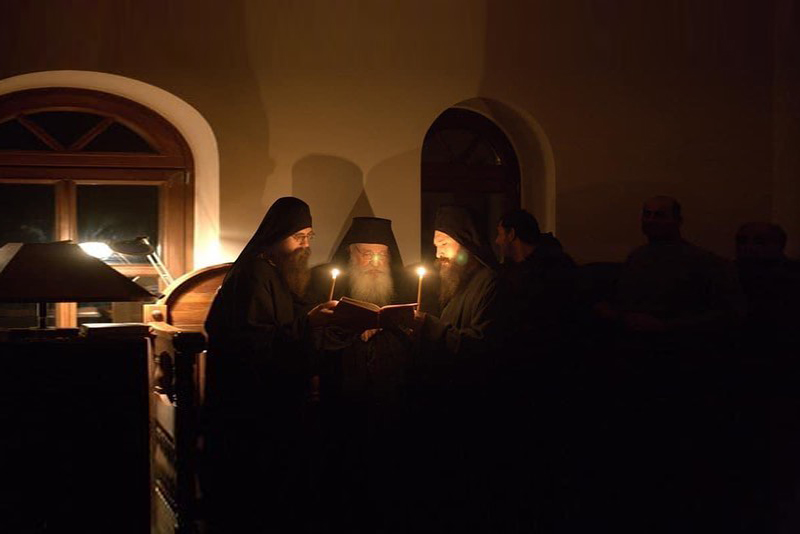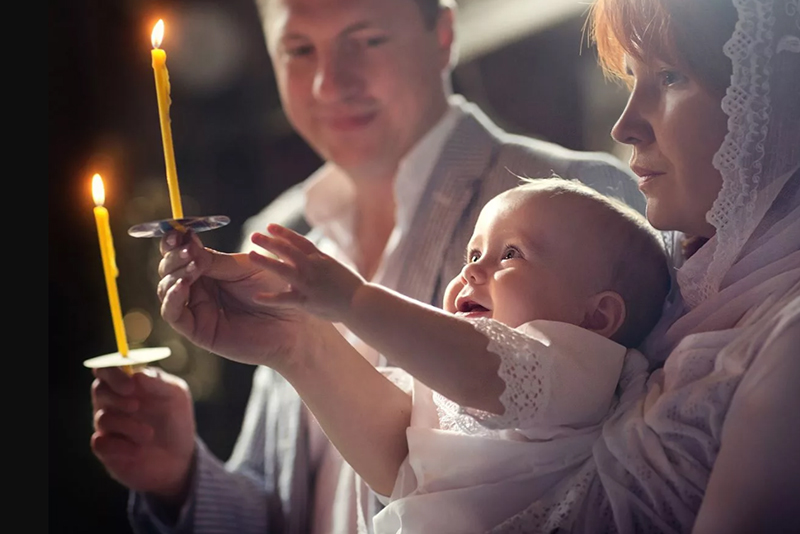
What’s the difference between penitential tears and hysterical tears?
Hysteria is a nervous state one brings himself into. For example, we can do so because of our sinful life. Every time we do something wrong, e. g. insult or offend someone, or maybe there are some troubles in our family due to our fault, it all adds up. If a person does not go to church, does not confess his sins, i. e. does not throw them out of his soul, does not purify it, it all just sits there like a heavy burden and then starts to torment us and leads us to all kinds of mental disorders, including hysteria. This is a condition of a sinful soul, which cannot find a way out for those emotions and for the burden it accumulates. That’s why there are breakdowns, frustrations, tears, wails, and screams. It has nothing to do with repentance or spiritual life. When a person is conscious of his sins, his tears have a different reason. As a rule, there is no hysteria but mostly calm and soft tears.
Is it okay to cry during a private prayer?
We can hardly control this process. If we want to cry, we cry. When a person prays, no one can forbid him or her to cry and no one can say whether it is good or bad: it’s just a given, a fact of life. We are talking about tears not in terms of crying per se, but rather in the sense of a contrite state of mind. The contrite state of the soul and the good deeds it ensues to atone for our bad deeds can purify our souls.
A friend of mine starts crying when she reads morning and evening prayers. She wondered if such tears might come from the devil.
No one but her can figure it out. Everyone can determine it by studying his or her own state of mind, his or her own impulses, desires, and actions. To do so, one should carefully monitor oneself for at least a few days, or even a single day. That is when we shall see if it is just a temptation and the devil wants to distract us from prayer, or if it is the other way around and those tears lead us to prayer.
It is true that sometimes you start crying and you cannot stop or do anything else at that moment. Prayer stops, and you start weeping uncontrollably. It can be a nervous breakdown or a demonic temptation, that is, the impact of the invisible world that is hostile to us. The reasons may vary but a person can listen to himself and find out the source of his tears.
What to do with a person who stands in the church and cries? Should I come to comfort him or leave him alone with God?
You know, this is not all that clear. On the one hand, if we approach the person, he or she may think that they look weird. This will scare them away from the church. Of course, if one comes to church and it happens to him, and he gets scared and goes away and doesn’t want to go back to church anymore, then it may be appropriate to tell him how to deal with it, but this needs to be done discreetly. If a person cries softly in the church but does not leave and continues to pray, then it is not advisable to disturb them. Let that person communicate with God; there is something happening in his or her soul. If we hear some friends, acquaintances, or relatives of ours tell us that something like this happened to them in church, then we can explain it to them, talk to them about it, direct them to the priest, or clarify it ourselves, so that they are not afraid.
We live in the world and commit sins. Therefore, it is natural that the enemy of the human race has access to our souls. The Lord said: “[O]f whom a man is overcome, of the same is he brought in bondage.” (2 Peter 2:19) Therefore, when we do good, we become servants and children of God, and when we do evil, respectively, we submit to the devil and he has access to us. When we go to church, after all the sins we’ve done during the day, week, month, the devil starts to pull the strings. He doesn’t want us to go to church and benefit from it, he will try to get us away from there by all means. Tears or some unusual physical, moral, spiritual experiences can also be caused by adversarial forces from the other side.
Translated by The Catalogue of Good Deeds
Source: http://gorlovka-eparhia.com.ua/slyozy-v-hrame-kak-reagirovat-video/



